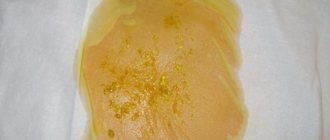The importance of drinking regime during diarrhea
Particular attention should be paid to what the patient drinks. This is even more important than the foods he eats. Goal No. 1 for diarrhea is to restore water-salt balance. It is ideal if it is possible to use Regidron for diarrhea. How to replace it at home? A weak cucumber or cabbage pickle will do.
Almost all drinks and restorative foods for diarrhea in adults should be rich in tannins. These are tannins that have pronounced astringent properties. They reduce mucus formation and promote stool thickness.
The following drinks have strengthening properties:
- ginger tea without sugar or other sweeteners;
- natural cocoa;
- self-prepared compote from dogwood and quince.
The usual and beloved coffee should be avoided for a while if you have diarrhea. This drink promotes increased intestinal motility, which provokes the patient to visit the toilet again and again. Coffee is good as a drink for constipation.
If diarrhea is accompanied by attacks of cholecystitis, it is permissible to drink weak choleretic tea. Such preparations can be bought at a pharmacy: they are inexpensive, but they are no less effective than pharmaceutical drugs that stimulate the flow of bile.
Gastronomic helpers in stopping diarrhea
Dietary nutrition for thinning and increasing stool frequency is an excellent alternative to medications that have side effects. In addition, if taking a tablet or suspension for diarrhea in an adult can relieve the symptom, but lead to complications of the disease that caused this condition, then fixing products have no side effects.
For diarrhea, you should consume the following strengthening products:
- Broths made from lean meats. In this case, it is desirable that this be the second broth.
- Foods high in starch help make stools stick together. These include potatoes, semolina and rice.
- Puree from baked apples and pears strengthens well and nourishes the body with important substances that have an antibacterial effect.
- Buckwheat porridge is considered a neutral product with a rich content of minerals and amino acids, so it does not cause diarrhea, but the strengthening property is only present in porridge cooked in water without oil and the addition of sugar and spices.
- Eating no more than two green bananas per day helps strengthen stool even with very severe diarrhea.
- Boiled eggs.
These products can be combined in different combinations, so the menu can be quite varied and this food has a lot of useful properties that have a positive effect on the entire body, and such a menu strengthens the immune system.
Kefir for diarrhea in adults and children
It is impossible not to mention the drink, which not only has a strengthening effect, but also improves intestinal microflora. This is natural kefir. It is important that it is not powdered (this is how almost all kefir drinks are prepared, which are cheap). Before purchasing, you should study the packaging: it must indicate the exact number of lactobacilli per 100 ml and their name.
Kefir is valuable due to the ideal ratio of alcohol and carbon dioxide. These components in the right proportion help not only reduce the urge to go to the toilet, but also restore the water-salt balance of the body.
Is it possible to have fermented milk products for diarrhea if it is caused by dysbacteriosis or an intestinal infection? In this case, it is better to refuse milk, cottage cheese, cheese, fermented baked milk, ice cream and whey. It is permissible to eat only natural kefir. Milk provokes increased diarrhea in almost all patients.
It is permissible to add butter in small quantities to rice porridge. But it is better to give preference to a teaspoon of natural olive oil, it will bring more benefits to the body.
If eating kefir alone makes you feel hungry, then you can prepare a smoothie with fixative products for diarrhea. Healthy and tasty recipe:
- 200 grams of banana steamed with boiling water;
- half a glass of quince compote;
- 200 ml natural kefir.
Mix all ingredients until smooth using an immersion blender or food processor. Drink on an empty stomach. This smoothie will curb your appetite for a long time and give you a feeling of fullness.
Does the chair weaken or strengthen?
Using the example of specific food products that are most often included in the diet of the average citizen, we will consider the features of their influence on stool consistency.
Banana
An overseas fruit that has a large list of beneficial properties. It has a beneficial effect on the human digestive system, slightly activating peristalsis. If you eat no more than 3-4 bananas at a time, the stool will become a little less frequent, but without signs of diarrhea. Abuse of this product can lead to spasm of the intestinal walls and short-term diarrhea.
Beet
The table type of this root vegetable differs from sugar beets in that it is allowed for consumption. Cold salads are prepared with red beets, they are added to first courses and simply eaten boiled. It has a strong laxative effect, so it is recommended to be taken in small portions. No more than 100-150 grams of vegetables per day. Otherwise, the presence of abdominal pain and loose diarrhea cannot be ruled out.
Kefir
A fermented milk product, the consumption of which leads to an increase in the population of beneficial bacteria living in the intestinal cavity. Due to this, the digestion process is accelerated, and feces move more quickly through the intestines and do not have time to become dense. Due to this, kefir is classified as a light and natural laxative. The main thing is not to drink too much, so as not to provoke bloating.
Coffee
This drink cannot be classified as a laxative for the simple reason that caffeine, tannin and tannins, which are contained in natural black coffee beans, slow down the bowels, harden the stool and quite often cause constipation, lasting from 1 to 3 days.
This is especially common in people who abuse coffee and drink 5 cups of an invigorating drink a day or more.
Pumpkin
Choleretic berry that stimulates the functioning of the gallbladder, its ducts, and the liver. Due to the release of an additional volume of this digestive secretion into the stomach cavity, feces become liquefied, which causes frequent urge to go to the toilet. The more pumpkin eaten, the more intense the laxative effect.
Cottage cheese
Does not belong to the category of products that make stool weak. When cottage cheese is consumed frequently and in large portions, its digestion slows down, since the product contains milk protein of animal origin - casein. Its digestion occurs very slowly and is not always absorbed in full. In addition to this, the saturation of cottage cheese with calcium, which also holds the stool together, is of great importance.
Persimmon
A specific fruit that is contraindicated for people with diseases of the digestive system, such as peptic ulcers, gastritis, duodenal erosion, pathologies of the pancreas and gall bladder. It is considered a laxative if a person eats 3 or more persimmons at one time. In addition, intestinal spasm, accompanied by persistent pain, cannot be ruled out.
Prunes
During the preparation of this dried fruit, almost all the moisture is evaporated from its tissues. When a person eats it, the body has to give up most of its liquid in order to ensure complete and high-quality digestion of prunes. In this regard, a short-term water deficit is formed in the gastrointestinal tract, the absence of which leads to constipation. Therefore, prunes are not considered a laxative, but act on the stool exactly the opposite.
Dates
Due to the increased sugar content, dates stimulate the functioning of pancreatic tissue, which begins to synthesize large amounts of the hormone insulin and digestive enzymes. Due to this, the stool loosens a little, but not so much that it causes significant discomfort to the person or reduces the quality of life.
Corn porridge
This dish, prepared from the main cereal crop, has a medium degree of severity in terms of its effect on the gastrointestinal tract. In most cases, if this cereal porridge is not seasoned with plenty of fat or a large amount of butter, then you should not expect a laxative effect.
The main thing is not to overeat, but to consume the product in moderation.
Oatmeal
Unlike corn grits, oatmeal is more liquid, and the grains of the cereal from which it is prepared have choleretic properties. Therefore, eating porridge daily for breakfast provides a person with excellent intestinal motility and stable stool. Oatmeal lovers never experience constipation or other gastrointestinal problems associated with emptying the digestive system.
Dried apricots
According to its etiology, these are dried apricot fruits. Dried fruit is prepared under high temperatures. This can be direct rays of the sun on a hot summer day or drying in the oven. During the cooking process, almost all the moisture evaporates, so dried apricots take up some of the liquid in the gastrointestinal tract in order to be properly absorbed. The product does not cause diarrhea, and if used frequently and in large quantities, it can cause constipation.
Raisin
Raisins, like most other dried fruits, are not able to have a laxative effect on intestinal motility. Of course, you can eat it, but not for people suffering from the accumulation of dense feces inside the gastrointestinal tract. The recommended serving of dried grapes is no more than 100 grams per day. Then the person will receive exclusively benefits from food.
Kiwi
The fruit contains a large amount of liquid, but does not have any other chemicals that may have a laxative effect. However, due to its wateriness, eating kiwi in large volumes (more than 5 fruits at a time) can make the stool more liquid and provoke short-term intestinal upset. This is especially true for people who initially have a tendency to experience frequent diarrhea.
Grape
White grape varieties can have laxative properties, while red and deep purple varieties, on the contrary, make the stool a little thicker. This is due to the presence of tannins in the peel of the berries. If a person eats grapes with seeds, then there is a 95% chance that he will have constipation in the next 2-3 days. The reason is the same as in the case of dark skin. In grape seeds, tannins are present in even greater concentrations.
Carrot
It all depends on the form in which this vegetable will be consumed. Raw carrots, eaten whole, grated with or without granulated sugar, are a natural laxative that are rich in healthy vitamins and minerals. Eating one medium-sized raw carrot is enough to make you go to the toilet weaker than usual. At the same time, boiled carrots have the exact opposite effect, and even one-time consumption will lead to the formation of hard feces.
Kissel
To prepare jelly, potato or corn starch is used, which, after entering the human stomach, provokes more active work of the pancreas. This organ is forced to synthesize more digestive secretions and the hormone insulin to ensure the digestion of jelly and the transformation of starch into glucose, and then food energy. Due to the additional load on the gastrointestinal tract, it is possible that a short-term intestinal disorder will occur, which will manifest itself in the form of diarrhea.
Pear
Unlike apples, which weaken stool, pears, on the contrary, make stool dense and dehydrated. Therefore, if a person eats at least one of this fruit daily, then the first problems with bowel movements may arise. This is especially true for tart varieties that contain virtually no fructose. Its absence is due to the fact that the pancreas does not show activity, and the digestion process takes a long time and with the formation of dense feces.
Honey
The laxative effect of this beekeeping product directly depends on the quantities in which it was eaten, as well as on the source of nectar. Honey collected from herbs and buckwheat does not have a laxative effect, and honey collected from white acacia pollen can activate peristalsis and cause diarrhea in people with weak intestines. Yet, in practical terms, such properties of this product are very rare, because bees collect it from various flowers, tree shrubs, and the likelihood of the presence of pollen exclusively from acacia is unlikely. In addition, you will need to eat a very large amount of honey to upset the digestive system.
Pearl barley
Cereal porridge, which is prepared from durum wheat. It has a dense and large grain, with a similar internal structure. It does not loosen stools, but has the exact opposite effect on feces. If you eat pearl barley porridge every day or several times a week, the stool will first become more dehydrated, and then the person may experience constipation.
Barley is also very difficult for the stomach and pancreas, so it is not recommended to be included in the menu for people with chronic pancreatitis, gastritis, or peptic ulcers.
Pomegranate
An absolutely neutral fruit in terms of its effect on intestinal motility. Regardless of how many ripe grants a person eats, the substances in its composition will not significantly change the consistency of the stool. Only various kinds of allergic reactions can occur, which will manifest themselves in the form of rash, hives, itching, and swelling of the mucous membrane. At the same time, the digestive system will retain its usual operating mode. Therefore, we can definitely say that pomegranate does not weaken the stool, but at the same time it does not make it dense.
Nuts
It all depends on what kind of nuts are eaten. For example, walnuts are a mild laxative due to the high concentration of oil in the kernel. Eating peanuts can cause inflammatory processes in the tissues of the pancreas and intestines and cause colitis associated with constipation. Hazelnuts are also no less difficult for the digestive system, so their consumption should be limited to no more than 60 grams per 2-3 days. Otherwise, the person will experience constipation, which in addition to this will also be accompanied by persistent pain.
Chamomile
Tea from this medicinal plant has an anti-inflammatory effect, stabilizes and soothes irritated tissues of all organs included in the digestive system. Chamomile is indicated for use in the presence of watery diarrhea. It does not cause constipation, but provides the human body with therapy, which stabilizes the density of feces. Approved for use by children and adults without age restrictions. Especially if a person has a tendency to have an allergic reaction to chemical medications.
Green tea
This drink is good for the body, it contains antioxidants, vitamin E, A, C, but at the same time, drinking it frequently and making steep tea causes constipation. The fact is that green tea contains tannins, tannin and caffeine, the percentage of which is higher than in black leaf tea. Due to this, the stool becomes dense, and when trying to empty the intestines, a person has to make maximum efforts. In this regard, this drink is not recommended for people who suffer from colitis, stomach or duodenal ulcers, or gastritis.
Rose hip
The berries of this wild shrub have a strong choleretic effect, and their intended purpose is boiling in boiling water to obtain compote. After the rosehip decoction enters the stomach, it begins to stimulate the gallbladder, which produces a large amount of bile, and intestinal motility accelerates, which in turn can cause diarrhea. In addition to the fact that the berry has laxative properties, it is also a diuretic, so if you drink this compote generously, a person will experience intense functioning of the organs of the excretory system.
Rice
In order for this cereal to be well digested and fully absorbed, you need to drink plenty of water. Then the digestive system will be provided with a sufficient volume of liquid, and rice will not take it from the intestinal walls and its epithelial tissues. Otherwise, it will cause constipation, which will last from 1 to 3 days. Following this, the person will experience colic and lack of appetite. Therefore, it is best to eat rice no more than once a week, or always wash it down with juice, tea, compote or a glass of mineral water.
Melon
A powerful laxative berry. Many people enjoy the aromatic and sweet pulp of melon, but its excessive consumption will very quickly have a laxative effect on the intestines, and the person will spend a long time in the toilet. It is possible that the entire process of gastrointestinal disorder will be accompanied by severe pain inside the abdomen. In order not to cause this kind of discomfort in yourself, you should consume no more than 7 slices of the berry. Large amounts will have an adverse effect on digestion.
Each person chooses which food product to give preference according to individual taste preferences, but despite this, it is important to remember that everything eaten has a direct effect on the functioning of the gastrointestinal tract, the tone of their muscle fibers and the density of stool.
First courses with a fixing effect for diarrhea
You should not starve and allow stomach pain due to diarrhea. Rich vegetable and meat broths are very useful. You can add chopped potatoes to them (this product is allowed for diarrhea).
Cream soups made from turkey fillet, chicken fillet, and potatoes are allowed. You can safely add salt for taste. You need to be careful with other spices: they most often provoke increased intestinal motility, and, as a result, the urge to go to the toilet becomes more frequent.
A simple recipe for creamy soup and anti-diarrhea products:
- 200 grams of peeled potatoes;
- 200 grams of chicken fillet;
- a liter of clean water or broth boiled on a chicken leg;
- salt - to taste.
Boil the ingredients until tender in salted broth and puree until smooth using an immersion blender or food processor. The resulting cream soup from these anti-diarrhea products is only tasty fresh - when reheated, the taste deteriorates.
If diarrhea is caused by pancreatic disease (pancreatitis), then the only way to reduce pain in the left hypochondrium is to eat only this puree soup. People with pancreatitis are prohibited from eating foods that are cut into large pieces during an exacerbation, since there may simply not be enough enzymes to digest them.
What foods strengthen the baby's stool during breastfeeding?
The best way out when diarrhea appears in a baby is to put the baby to the breast frequently. This will affect the normalization of intestinal function and help compensate for missing moisture. Under no circumstances should you give your baby tea, juices, meat broths, or vegetable decoctions. The reason for this ban lies in the large amount of salts contained in the listed drinks, which can only increase dehydration.
If diarrhea was caused by changes in maternal nutrition, it is necessary to change the diet for a while, eliminating irritating foods from it. When adding new products: fruits, vegetables, berries, you should adhere to gradualism, keeping small portions and always observing how the baby feels.
Main courses with a fixing effect for diarrhea
Oddly enough, baked goods made from white flour also have a binding effect. It is important to consider what exactly triggered the diarrhea. If this is dysbacteriosis, you should stop eating white bread and buns. Sugar in combination with yeast is a suitable foundation for the proliferation of pathogenic microflora.
Potatoes, due to their high starch content, are also a popular product for diarrhea. Boil the peeled tubers until tender, adding a little salt.
It is not recommended to eat puree with milk if you have diarrhea: milk has a laxative effect and increases peristalsis, which provokes more and more spasms. But you can add a spoonful of olive oil to the puree; this will saturate the body with healthy fatty acids.
What foods do you eat if you have diarrhea on the first day? At the very peak of the development of the disease, it is optimal to drink only rice water with the addition of a pinch of salt, drink as much pure plain water as possible or, if possible, with the addition of “Regidron”.
Features of cooking
Fastening products for diarrhea should be boiled or stewed, adding a minimum amount of oil. Frying and baking provide high calorie content - such dishes are very difficult to digest. And the organs of the digestive tract already work under increased load during diarrhea and the diseases that provoke it.
Eating fried foods and fast food is an extra burden on the stomach, liver, intestines and pancreas. Eating fatty foods requires the production of a large amount of bile - this also has an extremely negative effect on a person’s overall well-being and can provoke, in addition to diarrhea, heartburn and an attack of cholecystitis.
If the patient has chosen vegetables and fruits as the main products for diarrhea, then they should be boiled or at least put in the microwave for a couple of minutes so that they are not raw. The pulp contains a lot of fiber. It increases peristalsis, as a result, spasms may not only not go away, but also intensify. Even pears, known for their binding properties, should be peeled and lightly steamed in the microwave or in boiling water before eating.
Drinks for diarrhea
In addition to the fact that you can reduce intestinal activity with food, there are also drinks, the consumption of which enhances the effect. In addition, these drinks can be consumed at the time of exacerbation of diarrhea, when you cannot eat. They will strengthen the chair and help restore strength.
If an adult has diarrhea, you should drink the following drinks:
- Kissel made from a decoction of berries, such as blueberries, rowan or bird cherry.
- A decoction of dried fruits without added sugar.
- Strongly brewed tea.
- Warm infusion of pomegranate.
- Cocoa.
- Wine.
- Grape juice.
- Kefir that has been left in the refrigerator for several days. A fresh product causes the opposite reaction.
All this holds the intestines together and does not put any strain on the stomach. Therefore it has no side effects. They should not be drunk only by people with serious diseases of the digestive system, for example, ulcers or gastritis.
Important! Stool-fixing drinks should be drunk in moderation at intervals of several hours. During the steel season, you need to drink as much purified non-carbonated water as possible, which will help normalize intestinal function.
Is salt a friend or foe for diarrhea?
You can't give up salt. If you completely abandon it during diarrhea, you will have an even greater diuretic effect. With water, the body loses calcium, magnesium and other vital elements.
To prevent this from happening, you should not only add salt to your food, but also drink cucumber or cabbage pickle. It is not for nothing that in Rus' the first remedy for a hangover, which was accompanied by severe dehydration, was brine. With diarrhea, the body is also starved of minerals and healthy salts. After the diarrhea is stopped, you should take a course of a high-quality vitamin and mineral complex.
If the patient is preparing the first or second course, it doesn’t matter whether it is potatoes or cream soup, you need to add a little salt to it.
How to properly prepare rice water for diarrhea
The ideal product for diarrhea in a child is rice. It is rich in carbohydrates and protein. But the most important thing is that it holds together perfectly. If the diarrhea is very severe, then on the first day you can give the patient only rice water.
To prepare it, rinse 200 grams of regular white rice in water, add 600 ml of water and cook over low heat. Add half a teaspoon of salt. Without waiting for complete cooking, you should turn off the heat and let the broth steep for an hour or two. Then drain the liquid and give it to the child half a glass every two hours. In most cases, bouts of diarrhea stop the same day. The next day the condition will have stabilized, and you can give the child regular boiled rice to eat. For taste, you can add steamed peeled pear or similarly processed banana.
Symptoms of hard stool
Before you independently diagnose yourself that too dense feces are formed in the gastrointestinal tract, you should observe the behavior of the digestive system and directly pay attention to the presence or absence of the following symptoms:
- feces have a specific consistency and outwardly resemble multiple irregularly shaped balls, which are knocked together into one solid lump or scattered in different directions,
- within 20-30 minutes the stomach begins to swell, the person suffers from increased gas formation and flatulence, which stops almost immediately as soon as the act of defecation occurs,
- the process of passing feces is accompanied by unpleasant and cutting sensations inside the abdomen closer to its lower part,
- the anal opening is tense and the presence of acute pain syndrome cannot be ruled out, since static pressure occurs on the rectal mucosa,
- there is a state of general weakness, which intensifies after visiting the toilet,
- periodically for 1-2 days constipation occurs and stool is completely absent, but appears in an even harder state.
Adults suffering from such a defecation disorder may periodically observe minor admixtures of capillary blood in their stool, which indicates a violation of the integrity of the mucous membrane or injury to the anal tissues from too dense feces. All of the above signs are a direct reason to soften the stool as quickly as possible and make the work easier not only for the organs of the digestive system, but also at the same time to prevent the possible onset of intoxication of the entire body.
Pears for diarrhea in children and adults
Many people are still interested in what effect pears have on the intestines. Can they be used as a diarrhea product?
The main rule is not to eat pears raw or with the skin on. Use a knife to peel the fruit, then cut it in half and remove the core. Then place the fruits prepared in this way on a saucer and place in the microwave for three to four minutes, turning it on at full power. after this, you can safely use the fruit as a product for diarrhea.
Recipe for a decoction of pears and oatmeal for diarrhea
Preparing this decoction for diarrhea is quite simple:
- Combine three to four large spoons of oatmeal and 0.5 tbsp. dried pears
- Boil in half a liter of salted water.
- Leave for two hours.
It is recommended to take this decoction on an empty stomach. The optimal amount for an adult is half a glass three times a day, before each meal. For children, depending on their age, this dosage can be reduced to an amount equal to one tablespoon of decoction for infants and 0.25 cups for children of five years of age.
Bananas for diarrhea in patients
These fruits are rich in potassium, so eating them is very useful for dehydration and diarrhea. Important point: raw bananas are not advisable as food for people with diarrhea.
It is best to pre-cook them in the microwave. This way they will release the juice, and you will get a rather appetizing dessert. Or pour boiling water over it. This will not cook them, but the percentage of fiber that can cause cramps during diarrhea will be significantly reduced.
Constipation
This is a disorder of the gastrointestinal tract, which is accompanied by the absence of normal bowel movements for a day or more. The patient's diet and habits play an important role in bowel function and influence the frequency of bowel movements. Let's look at the main causes and symptoms of constipation.
Constipation
What affects constipation?
Constipation (or, as doctors also call it, constipation) often appears after surgery, severe stress, or when moving, for example, while traveling. These types of constipation go away on their own after a certain time and doctors do not classify them as diseases. If constipation occurs quite often, then in this case you need the help of a specialist.
15 reasons for constipation
The most common causes of constipation include:
- decreased muscle tone of the intestines;
- changes in the functionality of the intestine or its structure, which interferes with the normal movement of feces;
- violation of the proportionality between the volume of intestinal contents and the colon;
- unbalanced diet;
- bad habits;
- insufficient activity.
This is not the entire list of causative factors that can cause constipation.
Psychosomatics of constipation
Symptoms
Recognizing constipation is very easy and does not require any tests or special skills. Signs of constipation look like this:
- the intestines do not empty for several days;
- the act of defecation lasts quite a long time;
- discomfort or pain appears during bowel movements, since this process requires strong tension;
- even after completing the act of defecation, the patient feels heaviness in the abdomen, there is a feeling of incomplete bowel movement;
- the stomach becomes harder, bloating is observed;
- The consistency of feces is quite dry and dense. At the time of bowel movement, the patient may notice bloody discharge.
Chronic constipation
The combination of all these symptoms may indicate the development of serious diseases, so they cannot be ignored. Otherwise, complications may arise, including inflammation of the rectum (proctosigmoiditis), secondary colitis, hemorrhoids, anal fissure and other equally serious pathological conditions. Only timely consultation with a doctor will help prevent their development.
Haemorrhoids
Video: Causes of constipation
What apples are safe to eat for diarrhea?
For diarrhea, apples are eaten boiled, steamed or baked. They contain pectin, making them very effective at removing harmful toxins. With their help, pathogenic microflora is suppressed, which provokes diarrhea. The tannins in apples have an astringent effect. This is the most affordable remedy against diarrhea in both children and adults.
For diarrhea, apples are prepared according to a specific recipe:
- Grate several fruits, previously peeled, on a fine grater.
- Bake the resulting mass in the oven or microwave until the fruits release juice.
Instead of grating, you can cut the peeled fruits into rings, place them on a baking sheet covered with parchment paper, and bake in the oven at a temperature of about 180 degrees.
Persimmon for diarrhea: beneficial properties
Many varieties of persimmon have excellent astringent tanning properties. Thanks to this, the fruits can be used either in combination with fermented milk products for diarrhea, or as an independent remedy.
If the patient finds persimmon too astringent, then it is permissible to cut it into cubes and put it in the freezer for a couple of hours. It’s more pleasant to eat it cold; the astringent properties seem less pronounced. The main disadvantage of this fruit is that you can only buy it in the winter season, and in spring, summer and autumn you will have to opt for other anti-diarrhea products.
List of laxative foods that are prohibited
We have already found out what foods you can eat if you have diarrhea. Here are some that are prohibited:
- beets have a strong laxative effect - it is unacceptable to eat them in any form during diarrhea;
- herbs and spices;
- coffee and alcoholic drinks;
- prunes - both fresh and dried;
- raw vegetables and fruits due to their high fiber content;
- some fermented milk products.
Almost all people have known since childhood that some foods can make you very weak. So they are forbidden to use for diarrhea of any etiology. The patient must remain in bed, since physical activity also almost always brings peristalsis into an active state. And this, in turn, will contribute to increased attacks and spasms during diarrhea.
List of foods that help strengthen stool in adults with diarrhea
List of foods that help strengthen stool
When faced with this problem, remember that for a while you should give preference to the following products:
- Meat (necessarily lean). So, beef, rabbit or chicken can be boiled in the usual way, or you can steam it.
- Low-fat varieties of fish. Both river and sea fish are suitable. The most preferable option is to bake it in the oven without adding any seasonings.
- As for dairy products, you can’t do without low-fat cottage cheese. And then normalization of digestion will occur as quickly as possible.
- For boiled vegetables, stick to potatoes, carrots and boiled corn.
- Boiled eggs. You should think about limiting their use if you have any problems with the gallbladder.
- Pomegranate juice. It is taken three times a day.
- Products containing tannins. We are talking about strong black tea, black currants, tart persimmon.
So, we continue to list which products strengthen the chair. Eliminate cold, heavy, fatty and fried foods from your diet during illness. Also during this period you will have to do without nuts, milk, whole grain bread, raw vegetables and fruits (below we will separately focus on fruits that strengthen the stool).











